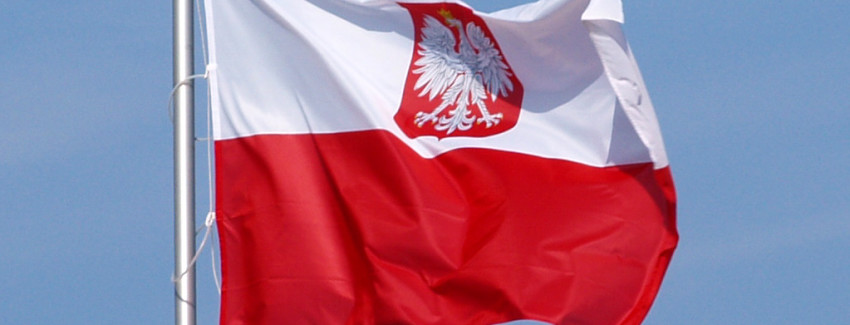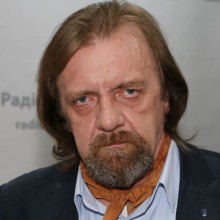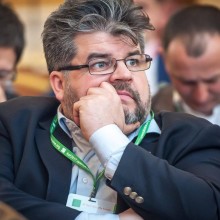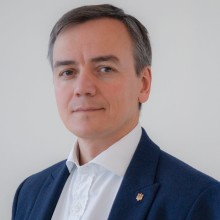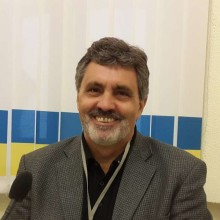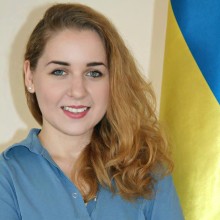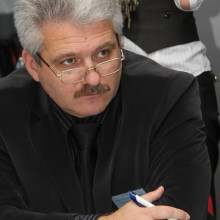Former Ukrainian diplomat, now a political expert and the director of the multilateral relations department of NGO 'Maidan of Foreign Affairs', Alexander Khara is a talks on tensions between Kyiv and Warsaw over the Volhynia Massacre and the future of the two nations
Several days ago, a group of renowned Ukrainian activists, writers and diplomats, including the first President Leonid Kravchuk, wrote a letter to the country's Parliament, Verkhovna Rada. They said Kyiv should approve three dates, which would be named Remembrance Days for Ukrainian victims of Polish crimes in 1930-1940s.
The letter aims to provide a parallel answer to the recent Polish Parliament's [the Sejm] decision to acknowledge the Volhynia Massacre as a genocide of the Poles, committed by Ukrainian nationalists in 1943-1945. The initiative is seen as a retaliatory move and could spark a wave of confrontation between the two nations, which became closer than ever in the wake of the Russian aggression in Crimea and Donbas.
The Ukrainian Parliament is yet to react to the letter as well as the Polish decision, because there is lot at stake here, depending on what the answer will be. Poland has been a major support for the post-Soviet state, both in terms of political resistance to Russia's destructive policy and serving as a mediator between Kyiv, the EU and NATO.
Ukrainian political expert, Alexander Khara criticized the measures proposed in the letter, saying that Poland and Ukraine should focus on finding common ground, instead of gradually escalating the dispute by making confrontational decisions. He says, Ukraine must come up with a response, but it needs to be well-timed and well thought out, and politics removed from the negotiations. Even though the Sejm's resolution was somewhat biased and one-sided, and thus, clearly political, as Ukraine said.
‘Politicians should concentrate on how to develop our strategic partnership, to leave all these disputes to historians and activists, debating at round tables, debating within Ukraine and certainly with Polish colleagues', Khara shared his thoughts on the matter.
But why did Poland even bring this issue up at a time when their neighbor is facing Russia in Donbas and Crimea? Khara explains, some Polish politicians are playing upon sentiments within the country. The majority of Poles believe that the Volhynia massacre was Ukraine's crime against their people, so it's easy to use the topic in hand to gain popularity.
Coincidentally, upon his arrival in Kyiv to take part in the celebrations of the country's Independence day, President Duda visited Bishop Vitaliy Skomarovsky of the Roman Catholic Kyiv-Zhytomyr Diocese, presenting him with a large cross, dedicated to the Poles ‘killed in Ukrainian territories'. A controversial move, that somewhat eclipsed the Polish leader's presence in Ukraine.
‘In Poland there are some political forces, including those in the Parliament, who are using and fueling this anger against Ukrainians just to get political bonuses. President Duda, while not fueling the conflict himself, is agreeing with the policy of those who are [fueling it – UT]. The cross he gave to the Bishop means that the President is pursuing this policy, and it's in his interests', Khara claimed.
However, despite the challenges, the Polish President's visit had been a strongly positive sign for Ukraine, the expert added. In his speech in Kyiv, Duda outlined several ‘pillars' of Poland's foreign policy that de-facto support Ukraine in its struggle for European future – the rule of law, non-recognition of the spheres of influence, and transatlantic institutions as a core of stability in Europe.
‘It means that Ukraine, willing to join NATO and the EU, will have a friend and an ally within these organizations, and this friend is Poland. We have common values and the same picture of the future, the favorable future of both nations. It means that we see the same enemies, who are trying to divide Europe from within, also trying to divide the US from Europe', Khara stated.
He added, it's in the best interests of the two countries to leave the past behind. If Ukraine is not successful in its fight against Russia, it will return to Moscow's sphere of influence, thus, serving the Kremlin's goals and depriving Poland of a safe and predictable neighbor.
That's why the two nations should follow the example of Germany and France, which reconciled even despite the atrocities the Nazis did to their neighbors. In the end, good friends can always overcome difficulties in their relations.
